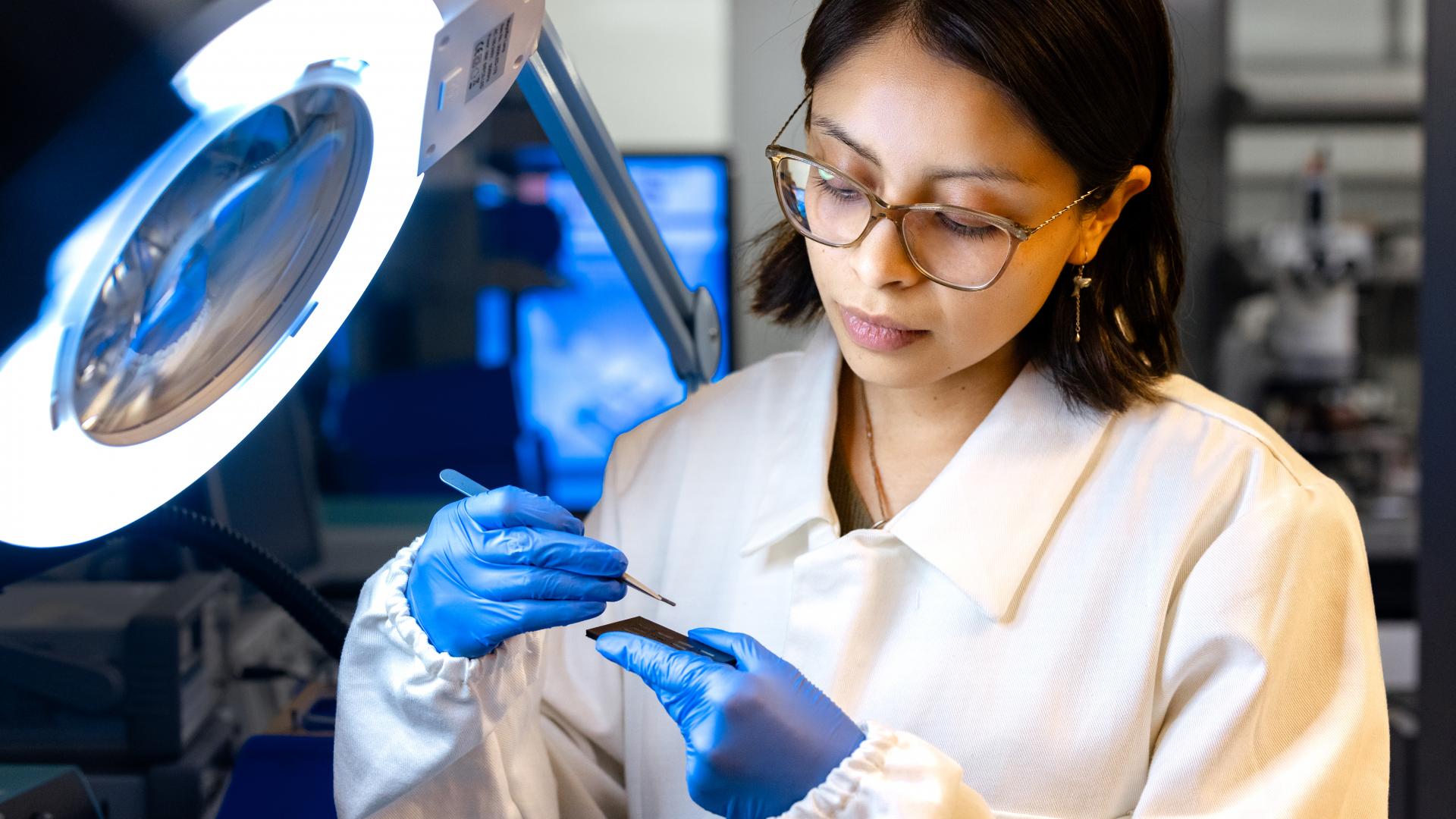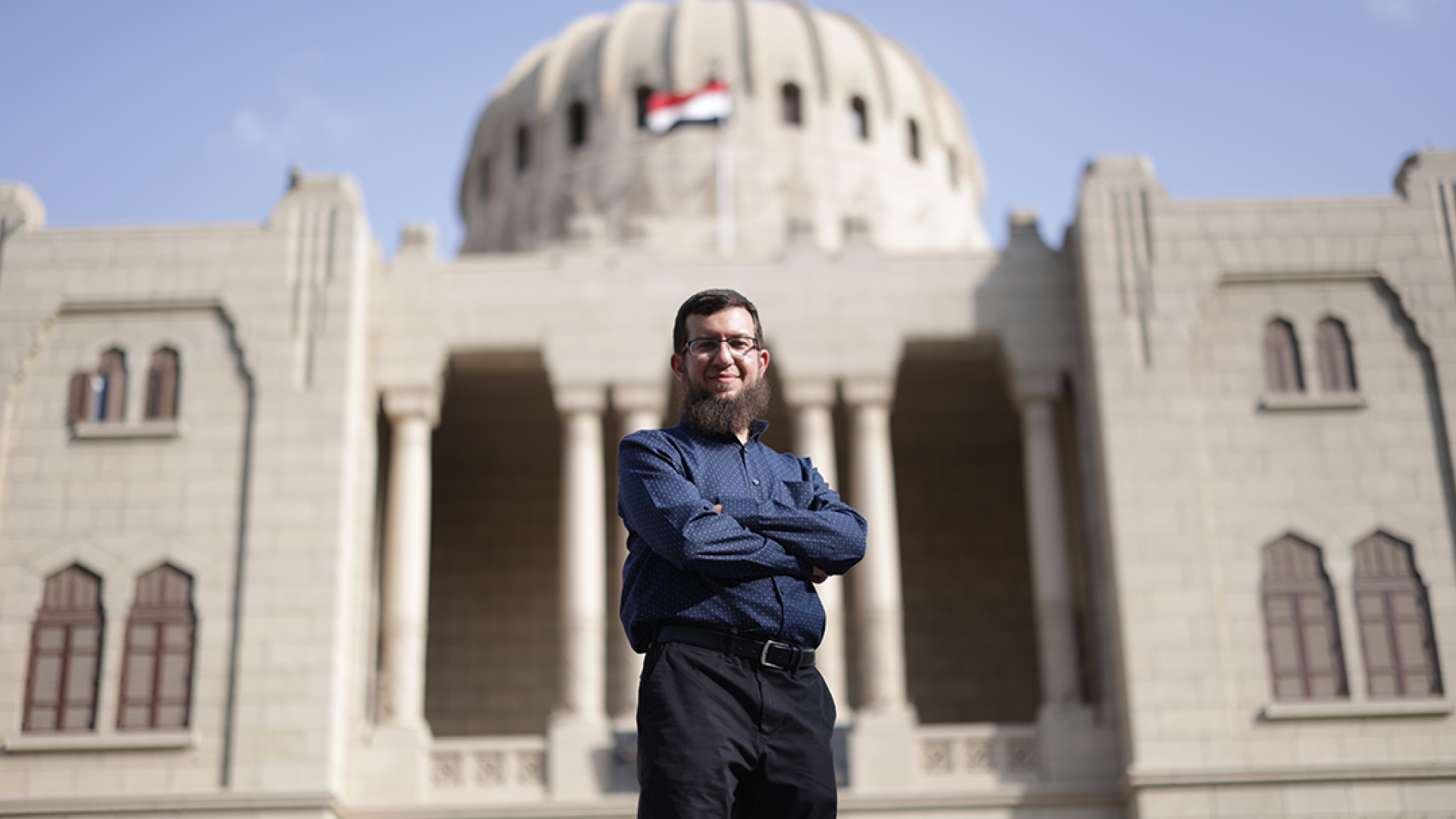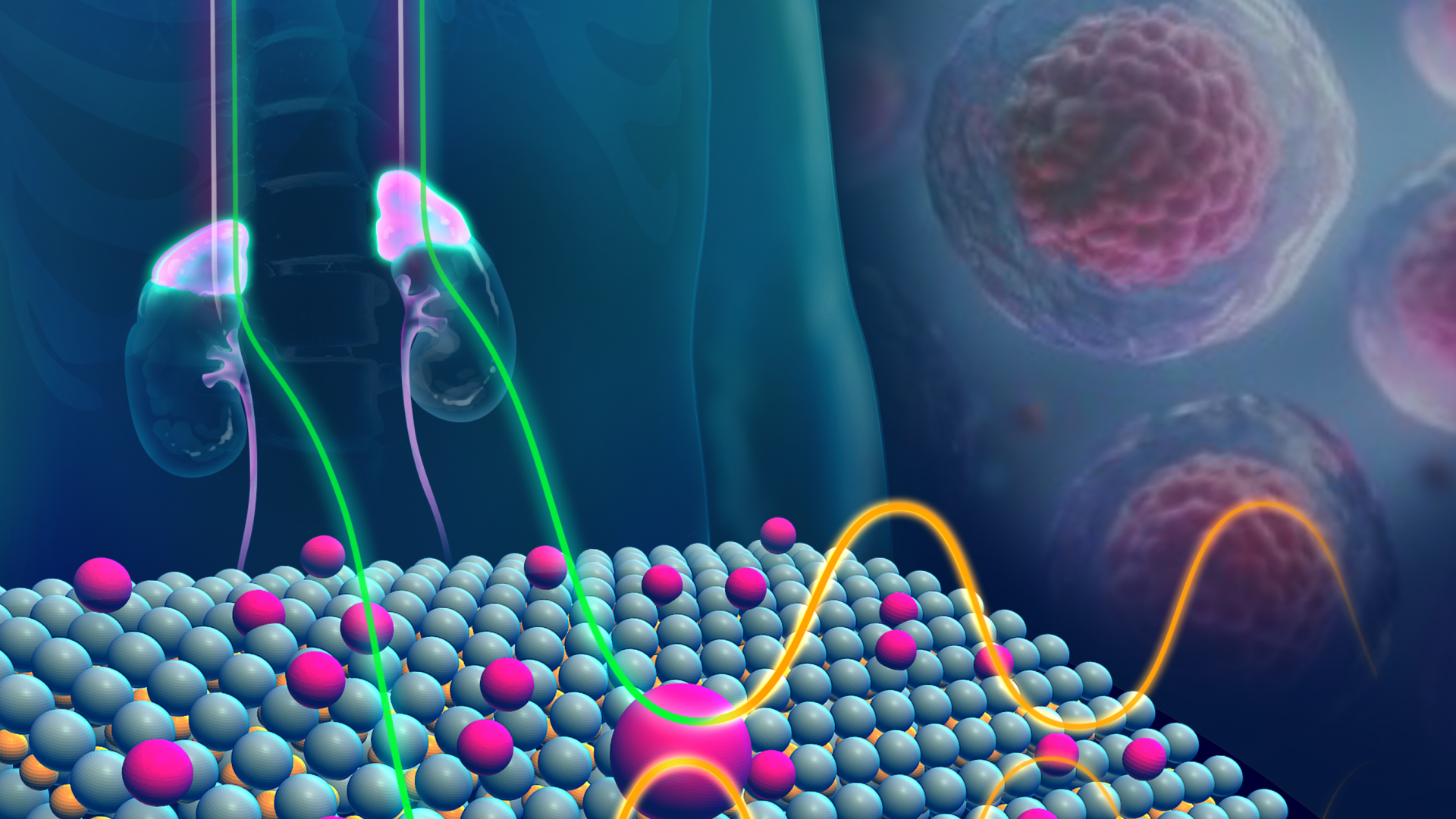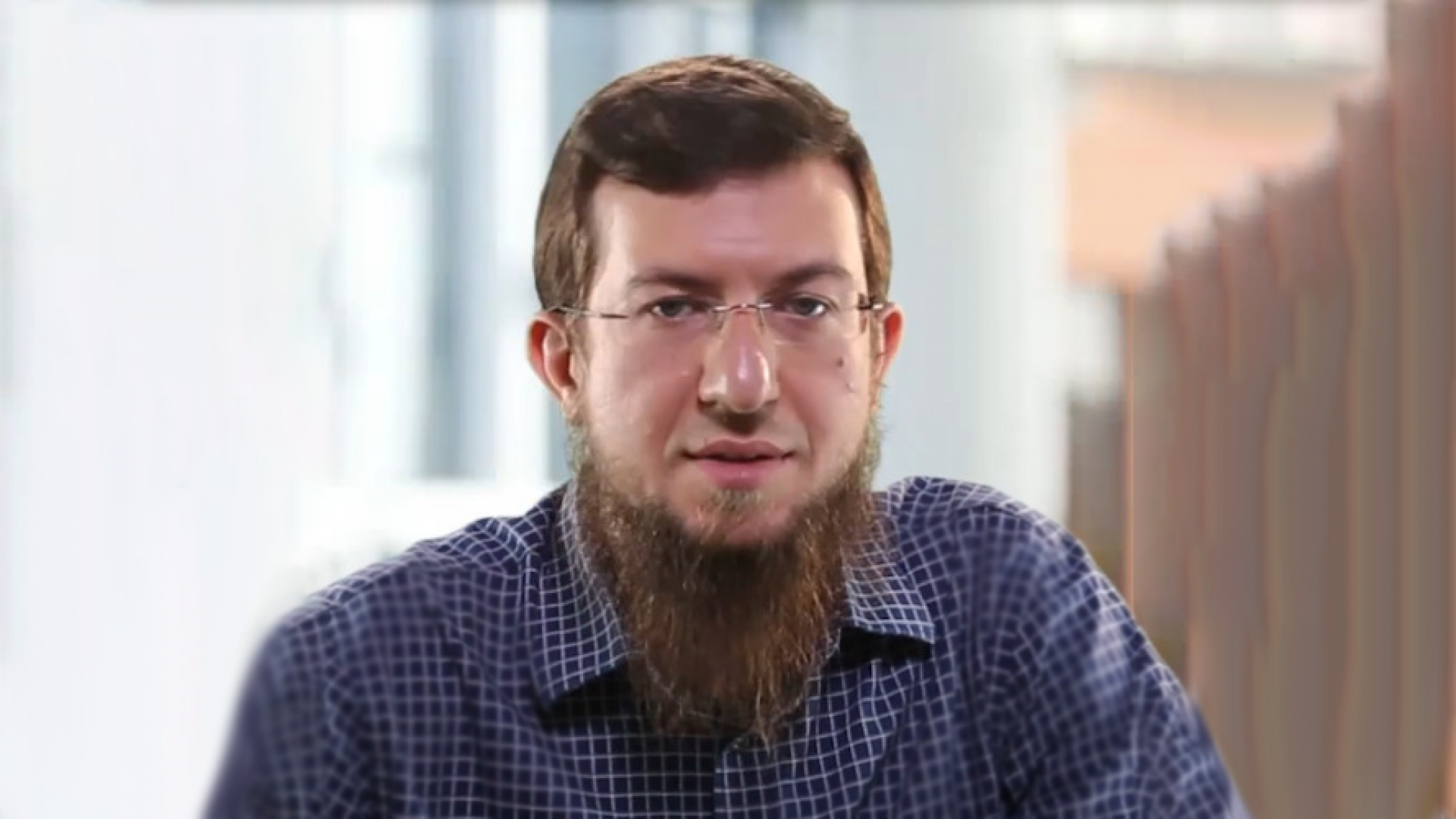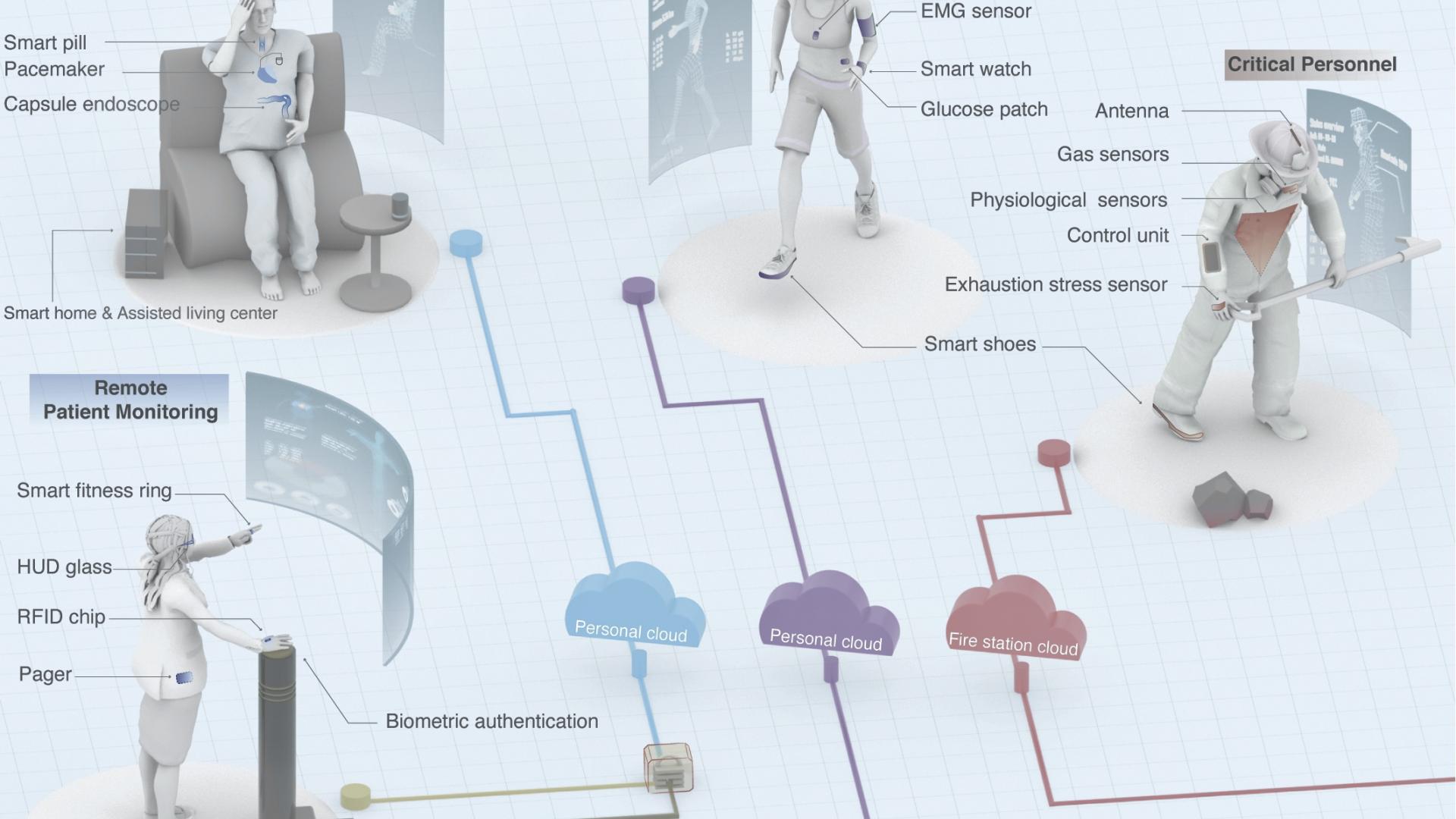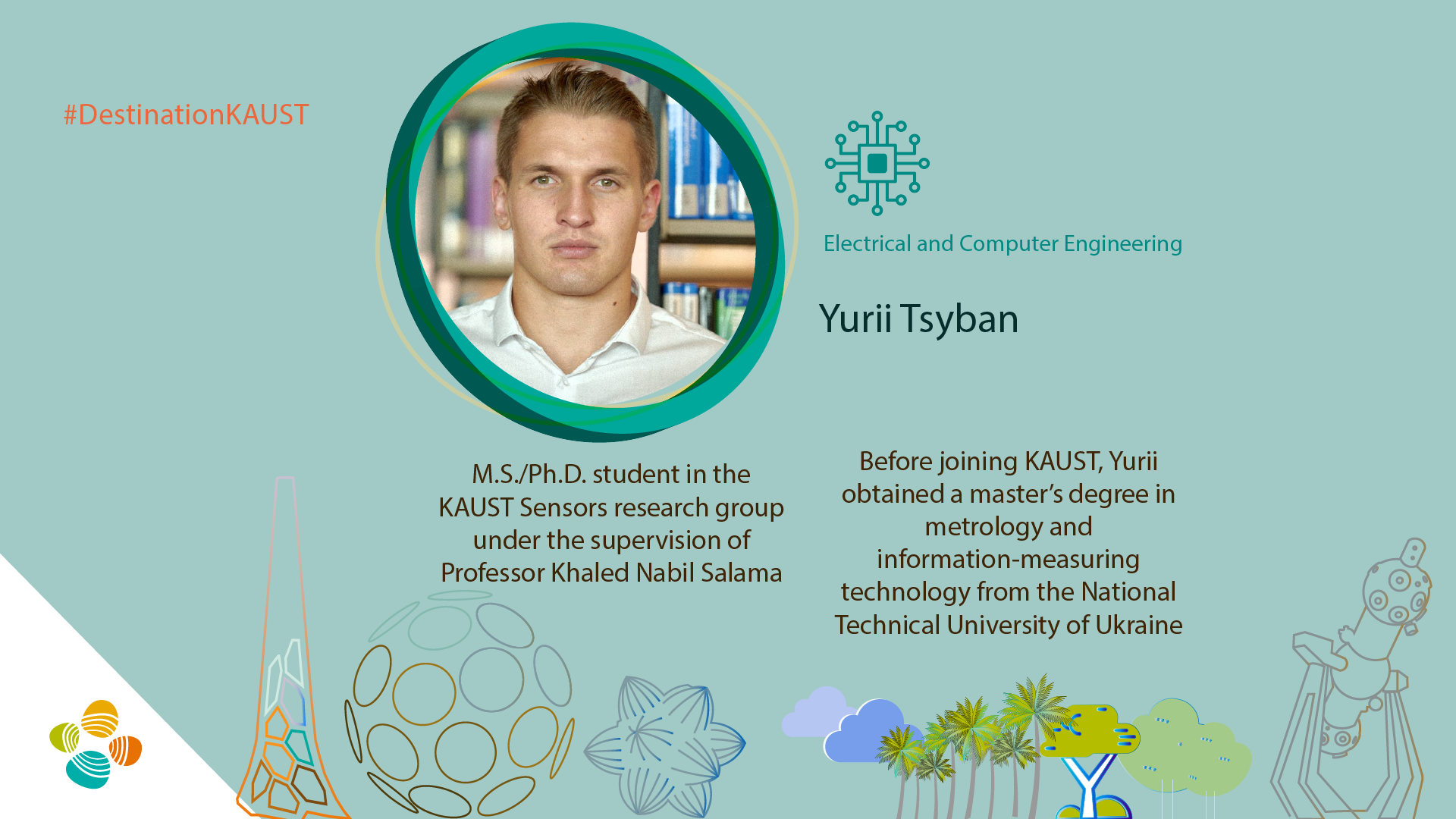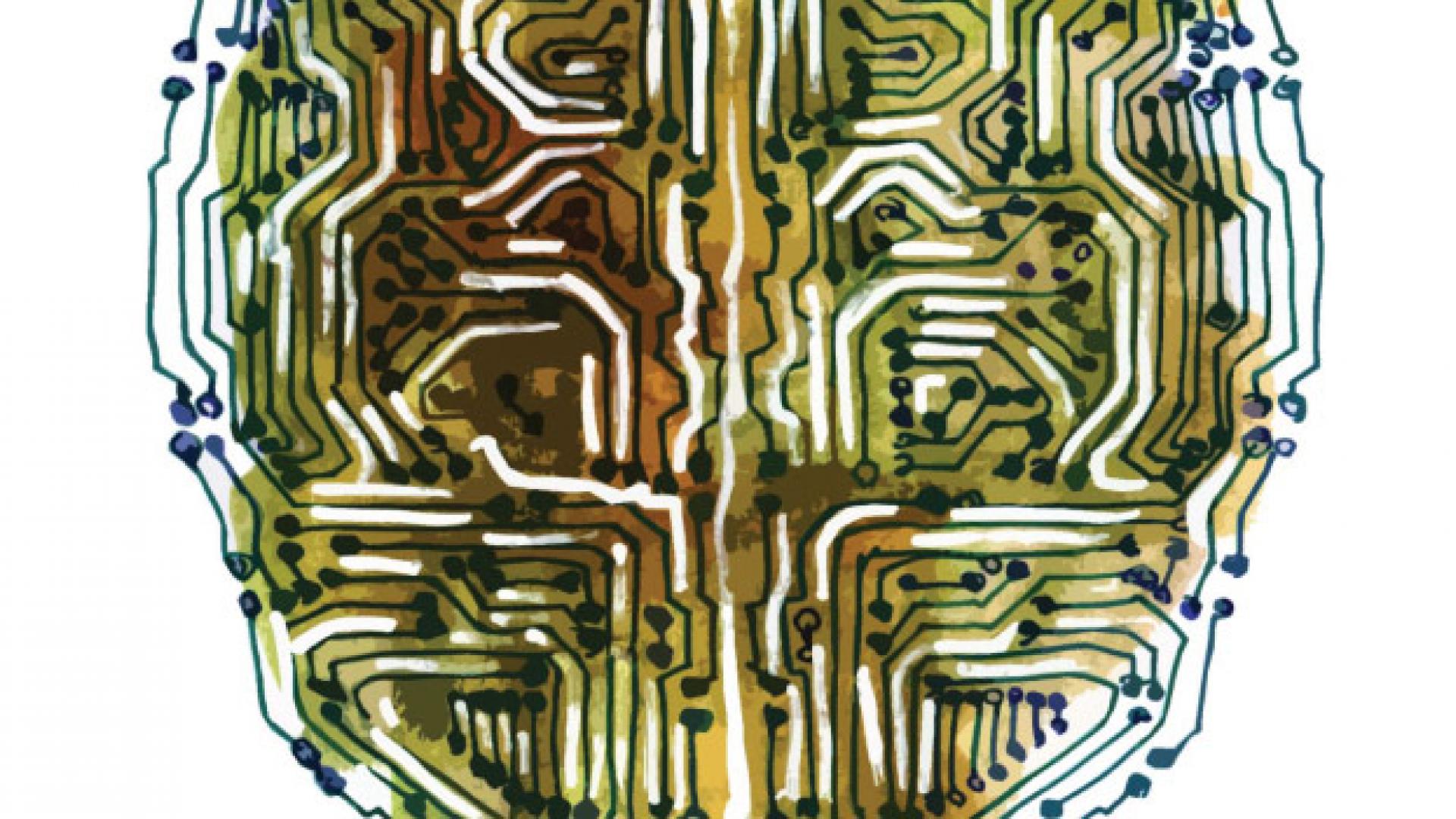Artificial skin coupled with sensors and machine learning technology allows people with voice disorders to communicate using soundless mouth movements.
Transforming urban air quality with innovative technology and sustainable solutions.
Computer memory systems that work change resistance rather than charge could greatly improve the performance of deep neural networks for machine learning.
Dr. Hesham Omran, a KAUST alumnus, recently won the prestigious UNESCO-Al Fozan International Prize for the Promotion of Young Scientists in Science, Technology, Engineering, and Mathematics (STEM).
KAUST researchers develop smartphone-integrated biosensor utilizing supramolecular entities
An electronic sensor based on individual atoms anchored to MXene nanomaterials can detect tumor-specific biomarkers.
Former KAUST Sensors Lab researcher Hesham Omran (Ph.D. ’15) has been named as one of the four winners of the Design Automation Conference (DAC) 2022 Under-40 Innovators Award. The award recognizes the top young innovators who have made a significant impact in the field of design and automation of electronics.
KAUST researchers have built an artificial electronic retina that mimics the behaviour of the eye’s rod retina cells. Their artificial retina can recognise handwritten numbers.
A network of body monitoring devices connected using our own tissue could form the basis for the internet of bodies (IoB).
Yurii Tsyban is a graduate in metrology and information-measuring technology who joined KAUST in July 2021 from the National Technical University of Ukraine "Igor Sikorsky Kyiv Polytechnic Institute."
With the continued growth in Internet of Things applications, deployments, and devices, highly connected, sustainable smart cities are no longer mere concepts or fantastical future dreams; many are already active and are expanding apace.
Ultrathin needles for probing plants could help keep crop health in check.
A neural network that mimics the biology of the brain can be loaded onto a microchip for faster and more efficient artificial intelligence.
Air pollution and its insidious effect on our environment remain a leading cause of health issues worldwide. Long-term and short-term exposure to air pollution’s detrimental effects can cause several illnesses, including pneumonia, heart disease, lung cancer and chronic respiratory diseases. According to the World Health Organization, air pollution (both ambient and indoor) accounts for an estimated seven million deaths worldwide each year.
Former KAUST Sensors Lab researcher Hesham Omran (Ph.D. ’15) has received the prestigious Egyptian State Encouragement Award in Engineering Sciences. Omran was honored by Egypt's Academy of Scientific Research and Technology (ASRT) for his scientific contributions and achievements for a “distinguished scholar younger than 40.”
